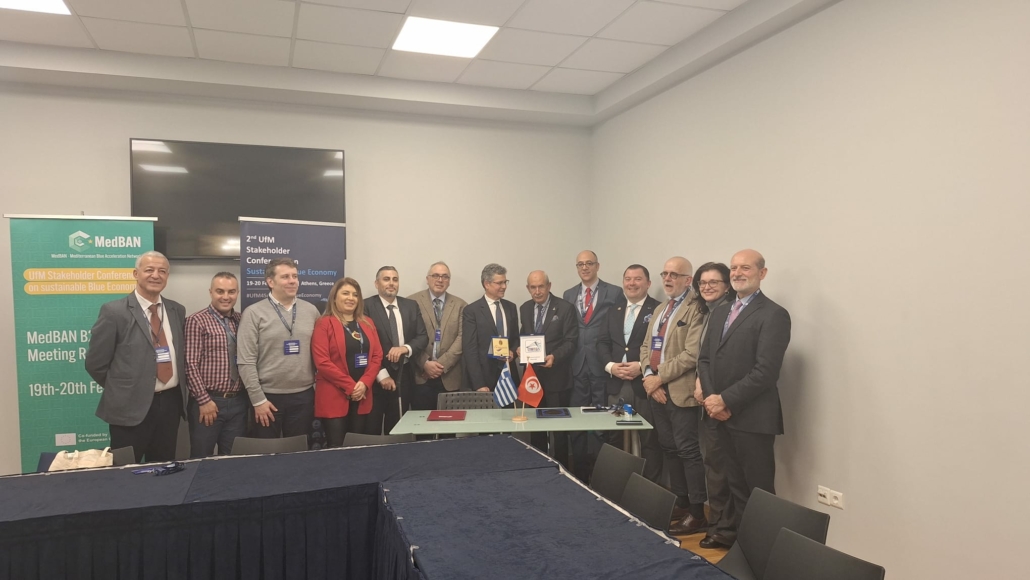A new strategic agreement between Greek and Tunisian maritime clusters represents an official gateway to boost the blue economy between the western and eastern Mediterranean.
On 19 February 2024, During the 2nd Union for the Mediterranean (UfM) Stakeholders Conference in Athens, the Cluster Maritime Tunisien (CMT) and Greek Strategis Maritime ICT Cluster (SMICT), signed a Memorandum of Understanding (MoU) to establish a systemic collaboration framework for common projects and initiatives.
The Cluster Maritime Tunisien is a non-profit organisation created in March 2019. Its objective is to secure the interests of all activities in the maritime and sea sectors in Tunisia. This maritime cluster also aims to re-establish international relations, create blue-economy lobbying and chart a sustainable strategy in all maritime sectors by strengthening links between the North and the South of the Mediterranean. The CTM is represented by its founder president, Captain Ezzeddine Kacem.
Strategis Maritime ICT Cluster was established in December 2016 as a private, non-profit organisation with the vision of becoming a world-class maritime cluster & technology flagship of the Greek Shipping industry. Its mission is to create innovative business ecosystems in digital shipping and the blue economy, expand the competitive advantage of Green shipping and contribute to the sustainable development of the marine and maritime sectors in south-east Europe and the Mediterranean. SMICT is represented by its founder and managing director, Dr. Gregory Yovanof.
The MoU is based on the principles of cooperation by strengthening and expanding networking opportunities between both clusters as well as collaborating in initiatives and alliances on innovation and internalisation of blue economy in a broader sense. The exchange of information, knowledge and collaborative innovation ideas, is another key pillar of this joint initiative.
Maritime clusters are pivotal in implementing the Blue Economy agenda in the Mediterranean. They are essential actors in aggregating local SMEs and large companies across a range of sectors in the blue economy, including through synergies with enterprises involved in in-land activities across complex value chains.


